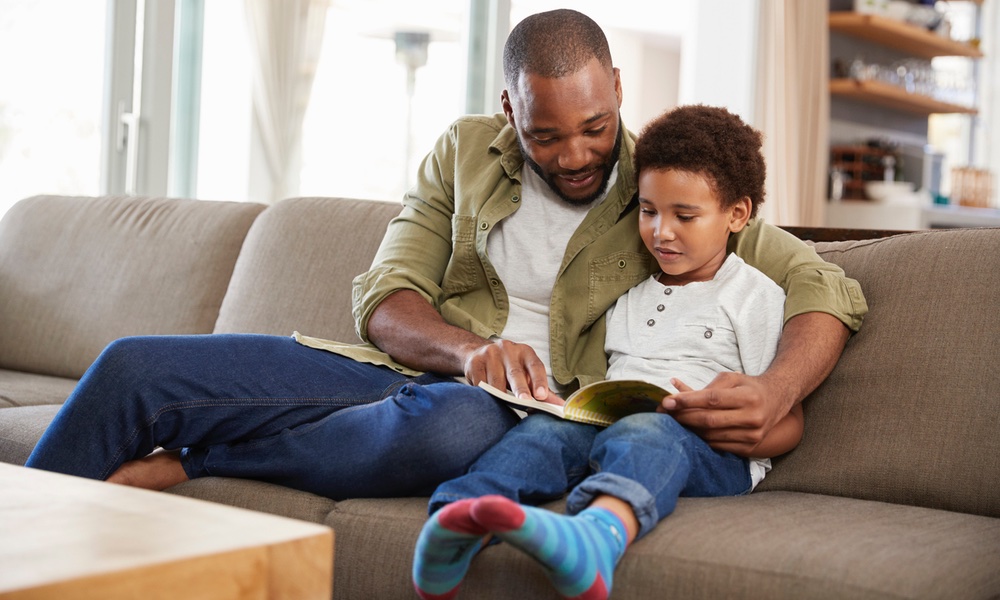Settling down to read a book at bedtime — or anytime — is a good way for parents and children to spend time together, turning pages, pointing to pictures and talking about the story. Today picture books are sometimes replaced by a book downloaded to an electronic device. Having an e-book certainly changes the page-turning part of that interaction, but does it affect the overall quality of story time? The answer, a recent study found, is yes, and not in a good way.
Traditional, hard copies of books appear to offer a better overall experience for parents and children at story time, according to a study published in Pediatrics. The quality of parents' and children's interactions over books printed on paper is better, the University of Michigan C.S. Mott Children's Hospital study found. They prompted more conversation and got kids verbalizing more than story time with e-books did.
The back and forth between parents and children when reading a story can may not seem like much, but the interactions are important for child development. “Shared reading promotes children's language development, literacy and bonding with parents. We wanted to learn how electronics might change this experience,” lead author, Tiffany Munzer, said in a statement.“Reading together is not only a cherished family ritual in many homes but one of the most important developmental activities parents can engage in with their children.”
“Parents strengthen their children's ability to acquire knowledge by relating new content to their children's lived experiences,” she said.
The parent-toddler pairs in the study used three book formats: print books, basic electronic books on a tablet and enhanced e-books with things like sound effects and animation. Researchers saw that not only did parents interact less when reading an e-book, they also tended to talk less about the story and more about the technology itself, spending time giving their children tips on using the device, such as telling them not to push buttons or change the volume, a different kind of conversation than they would be likely be having when reading a book with paper pages.
“Research tells us that parent-led conversations is especially important for toddlers because they learn and retain new information better from in-person interactions than from digital media,” said Munzer.
This loss of interaction matters because reading time typically involves expressions of warmth, closeness, and enthusiasm and likely carry over as children get older.
If you do choose to read electronic books with your toddler, the authors recommend you try to engage with them the way you would if you were reading the print version, and keep references to the technology to a minimum. “Reading together is not only a cherished family ritual in many homes but one of the most important developmental activities parents can engage in with their children,” senior author, Jenny Radesky, a developmental behavioral pediatrician at Mott, said.
“Our findings suggest that print books elicit a higher quality parent-toddler reading experience compared with e-books,” Radesky adds. She urges pediatricians to encourage parents to read print books with their kids, “especially young children who still need support from their parents to learn from any form of media.”





